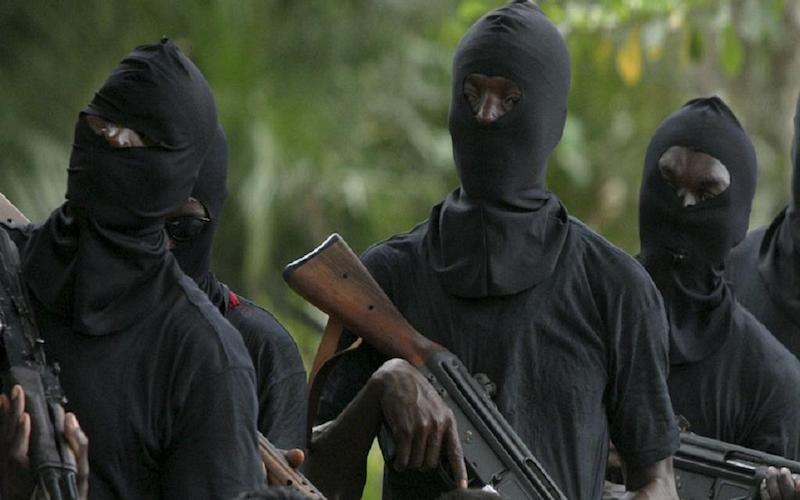
Nigeria under siege: The alarming rise of kidnappings demands radical action
The latest report on kidnappings in Nigeria makes for grim reading. A staggering 2,140 individuals were abducted across 24 states between January and July, projects the country’s spiralling insecurity.
The government’s efforts to combat this epidemic have fallen woefully short, leaving citizens vulnerable to the mercy of kidnappers, bandits, and terrorists.
The data paints a tragic picture: 193 people were abducted in January, 101 in February, and a staggering 543 and 977 in March and May, respectively. The worst-hit states are Zamfara, Kaduna, and Niger, with the Federal Capital Territory, Abuja, also recording a disturbing 183 kidnappings.
These numbers represent more than just statistics – they are the lives of men, women, and children torn from their families, communities devastated by fear, and a country held hostage by criminals.
Isa Bawa, 73, the Emir of Gobir in Sokoto State, who was abducted by bandits while travelling from Sokoto to Sabon Birni near the Niger Republic border in July, was murdered on Wednesday due to the delay in paying the N60m ransom demanded by the kidnappers.
The bandits collected the ransom and killed the monarch but freed his son.
In just seven months, a total of N389m was reportedly paid to secure the release of 62 victims.
This figure is only a fraction of the overall amount extorted by kidnappers, as many ransom payments go unreported.
The sums are staggering: N25m for a hotelier in Port Harcourt, N60m mobilised by a former minister, Ali Pantami, for the release of his relatives, and $50,000 (N79.8m) for the release of a retired military officer.
These payments not only embolden kidnappers but also fuel a vicious cycle of crime, further undermining the country’s tenuous security.
The impact of the kidnapping epidemic extends beyond the immediate victims. Entire communities live in fear, paralysed by the threat of abduction. International investors receive advisories from their embassies to steer clear of states considered kidnap and criminal hotbeds.
Regrettably, President Bola Tinubu appears oblivious to the severity of the situation. Instead of addressing the growing insecurity, Tinubu continues to jet worldwide in search of investors.
No investor would be willing to stake capital in a country where law and order are breaking down. While foreign investors are fleeing, local businesses are also suffering.
An indigenous company, Okomu Oil Plc, has threatened to shut down operations due to the spate of kidnappings and attacks on its facilities. The Tinubu administration’s failure to prioritise security has allowed bandits and kidnappers to consolidate their grip on vast swathes of the country.
Furthermore, the Federal Government must immediately bolster the federal police force. With only 371,000 officers to protect a population of 231 million, Nigeria’s police force is woefully shorthanded.
The Federal Government must urgently enhance the federal police force. With just 371,000 officers for a population of 231 million, Nigeria’s police are critically understaffed.
Moreover, over two-thirds of these officers are assigned to VIP protection, leaving the general public exposed to criminal threats. President Tinubu and Inspector-General of Police Kayode Egbetokun should rectify this imbalance by reducing the number of officers dedicated to VIP protection and reallocating them to areas where they are needed most.
Investing in advanced technology, such as drones and surveillance systems, is also crucial for improving the police’s ability to gather intelligence and prevent crime.
Immediate action is necessary. Nigeria cannot continue its current trajectory of insecurity and lawlessness. The government must prioritise public safety and develop a comprehensive strategy to address the kidnapping crisis.
This strategy should involve decentralising the police force, increasing recruitment and deployment, leveraging technology, and boosting citizen involvement.
Without these reforms, the kidnapping epidemic will only worsen, eroding public trust in the government and endangering the country’s future. Nigeria stands at a critical juncture. The choices made today will determine whether the country can overcome its security challenges or sink deeper into chaos.
The responsibility lies with the government, security agencies, and every Nigerian citizen. It is time to act decisively and with resolve to reclaim the country from the grip of kidnappers and restore peace and security.
The situation demands a radical overhaul of the security architecture and a renewed commitment to safeguarding the lives and property of Nigerians.
The government must take bold and decisive action to address the root causes of this insecurity, including poverty, unemployment, and corruption. It is time for a comprehensive approach that involves not only military might but also social and economic interventions.
The citizens of Nigeria deserve better. They deserve to live without fear of being kidnapped, to go about their daily lives without constant anxiety, and to trust in the ability of their government to protect them.
The time for action is now. We cannot afford to wait any longer as the country continues to bleed. The government must act, and act decisively, to restore security and hope to the people of Nigeria. Enough is enough.




